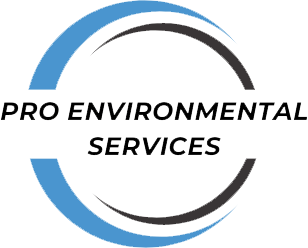Is Mold Only a Concern for People with Allergies?
Many believe mold only affects those with allergies, but that’s not the case—especially when it comes to toxigenic mold. While some individuals may be more sensitive due to genetics, mold exposure can affect anyone. Even people without allergies can experience serious, long-term health problems from mold exposure. Many, including our own family, have developed severe issues related to mold, often diagnosed as CIRS (Chronic Inflammatory Response Syndrome). Recent studies reveal that mold doesn’t just trigger an allergic reaction, but rather an inflammatory immune response that can impact nearly every system in the body.
What is an Indoor Environmental Professional (IEP)?
An IEP is a specialist who is trained and certified to assess, diagnose, and recommend solutions for indoor environmental quality issues. In the world of mold, an IEP is an expert in finding and diagnosing moisture problems and microbial growth including multiple methods laboratory sampling, proper remediation planning/strategy, and preventative recommendations.
How do I know that my health issues are caused by mold?
We always recommend reaching out to a doctor or clinic that is experienced in treating CIRS. But if you are new to this journey, and don’t know where to start, we recommend visiting the Surviving Mold website to learn about CIRS and see if you meet the diagnostic criteria.
Mold is Making my Family Sick? What’s Next?
We’re here to help! Our trained professionals specialize in identifying and eliminating mold that may be affecting your health. We perform a thorough inspection of your home using state-of-the-art tools and lab samples to confirm the presence of mold. If needed, we can even determine if the mold is toxigenic.
Can Mold Grow in Michigan?
Yes! Mold doesn’t only thrive in humid climates. Modern homes, with their sealed environments, are perfect breeding grounds for mold. Even small leaks, condensation, poor building design, or water damage can provide enough moisture for mold to grow. Certain types of mold, like Aspergillus and Penicillium, can thrive in areas with slightly elevated humidity and start spreading in as little as 48 hours.
How to Tell if You Need a Mold Inspection
Mold often hides out of sight, but there are several warning signs to look out for. A persistent musty odor or visible water damage are clear indicators. If anyone in your home is experiencing allergic reactions—such as coughing, sneezing, or difficulty breathing—it may be time to call in the experts for a thorough mold inspection. Don’t wait; protecting your property and health is essential.
What Areas Does Pro Environmental Services Serve?
We proudly serve in lower Michigan.
Can Mold Affect My Home’s Value?
Yes, mold can significantly reduce your home’s value. Potential buyers often look for signs of mold, and homes with visible mold or a history of mold issues can be harder to sell. Addressing mold issues early can help preserve your home’s value and ensure a healthier living environment.
How Quickly Does Mold Spread?
Mold can begin to spread in as little as 24 to 48 hours after moisture is present. The longer you wait to address a mold problem, the more extensive the damage can become. Acting quickly can help minimize the spread and reduce the risk of further health issues.
